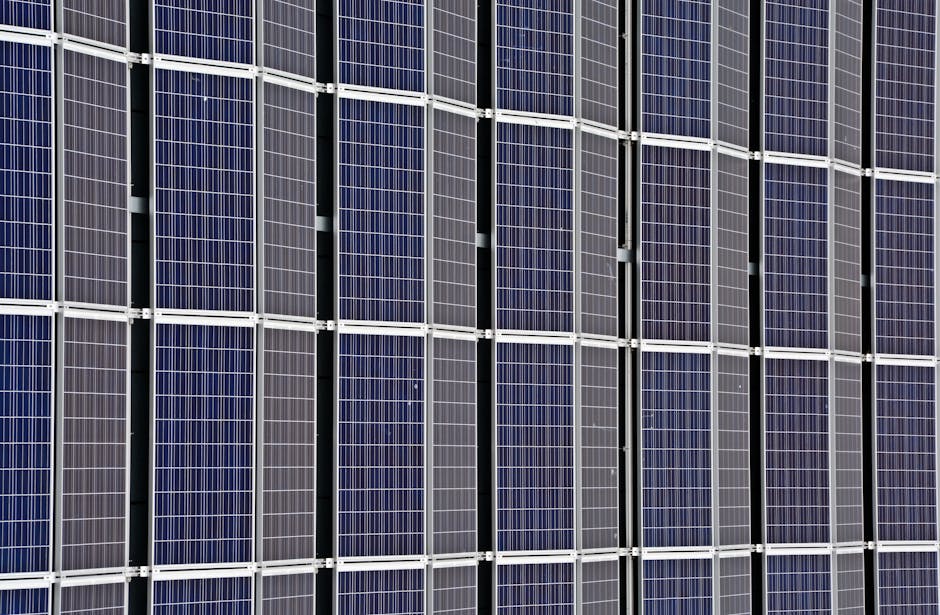Sunpower Vs Rec Solar Panels
When it comes to harnessing the power of the sun, choosing the right solar panels is crucial. Two of the most popular brands in the solar industry are Sunpower and REC. Both companies offer high-quality solar panels, but they have distinct features, benefits, and drawbacks. In this article, we will explore the differences between Sunpower and REC solar panels, helping you make an informed decision for your solar energy needs.
Understanding Solar Panels
Before diving into the specifics of Sunpower and REC, let’s briefly understand what solar panels are and how they work. Solar panels convert sunlight into electricity through photovoltaic cells. These cells are made of semiconductor materials, typically silicon, which generate direct current (DC) electricity when exposed to sunlight. This electricity can then be converted into alternating current (AC) for use in homes and businesses.
Overview of Sunpower Solar Panels
Sunpower is known for its premium solar panels that offer high efficiency and durability. Here are some key features:
- High Efficiency: Sunpower panels are among the most efficient on the market, with some models exceeding 22% efficiency. This means they can convert more sunlight into electricity compared to many other brands.
- Durability: Sunpower panels are designed to withstand harsh weather conditions, including high winds and hail. They come with a robust warranty, often lasting 25 years or more.
- Innovative Technology: Sunpower uses advanced technology, such as Maxeon solar cells, which have a unique design that minimizes energy loss.
Overview of REC Solar Panels
REC is another reputable brand in the solar industry, known for its reliable and cost-effective solar panels. Here are some of their standout features:
- Good Efficiency: REC panels typically offer efficiency ratings between 18% and 22%, making them competitive but slightly lower than Sunpower.
- Affordability: REC panels are often more budget-friendly compared to Sunpower, making them an attractive option for homeowners looking to save on initial costs.
- Environmental Commitment: REC is committed to sustainability and uses eco-friendly manufacturing processes, which can be a significant factor for environmentally conscious consumers.
Comparing Efficiency
Efficiency is a critical factor when choosing solar panels, as it determines how much electricity can be generated from a given amount of sunlight. Here’s how Sunpower and REC stack up:
- Sunpower: With efficiency ratings often exceeding 22%, Sunpower panels can produce more energy in less space. This is particularly beneficial for homes with limited roof space.
- REC: While REC panels offer good efficiency, they generally fall slightly behind Sunpower. However, their efficiency is still sufficient for most residential applications.
Durability and Warranty
Durability is essential for solar panels, as they need to withstand various weather conditions over their lifespan. Let’s look at the durability and warranty offerings of both brands:
- Sunpower: Sunpower panels come with a 25-year warranty that covers both product and performance. They are built to last, with a reputation for high durability.
- REC: REC also offers a 25-year warranty, but it may vary by model. Their panels are designed to be robust, but some users report slightly lower performance in extreme conditions compared to Sunpower.
Cost Considerations
Cost is often a deciding factor when choosing solar panels. Here’s how the pricing of Sunpower and REC compares:
- Sunpower: Generally, Sunpower panels are more expensive due to their high efficiency and advanced technology. The initial investment can be higher, but the long-term energy savings may offset this cost.
- REC: REC panels are typically more affordable, making them a popular choice for budget-conscious consumers. They offer a good balance of performance and price.
Installation and Compatibility
Installation is another important aspect to consider when choosing solar panels. Here’s what you need to know about the installation process for both brands:
- Sunpower: Sunpower panels require professional installation, which can add to the overall cost. However, their high efficiency means you may need fewer panels, potentially reducing installation time.
- REC: REC panels are also best installed by professionals. They are compatible with various mounting systems, making them versatile for different roof types.
Performance in Different Conditions
The performance of solar panels can vary based on environmental conditions. Here’s how Sunpower and REC perform in different scenarios:
- Sunpower: Known for excellent performance in low-light conditions, Sunpower panels can generate electricity even on cloudy days. Their design minimizes energy loss, making them reliable in various climates.
- REC: REC panels also perform well in diverse conditions, but they may not be as efficient as Sunpower in low-light situations. However, they still provide solid performance in sunny environments.
Environmental Impact
For many consumers, the environmental impact of solar panels is a significant consideration. Here’s how both brands address sustainability:
- Sunpower: Sunpower is committed to sustainability and uses eco-friendly materials in their manufacturing process. They also focus on recycling and reducing waste.
- REC: REC has a strong environmental commitment, utilizing renewable energy in their production and ensuring that their panels are recyclable at the end of their life cycle.
Customer Support and Reputation
Customer support and brand reputation can influence your decision. Here’s a look at how Sunpower and REC fare in this area:
- Sunpower: Sunpower has a solid reputation for customer service and support. They offer extensive resources for customers, including installation guides and maintenance tips.
- REC: REC is also well-regarded for customer support, providing helpful resources and a responsive customer service team.
Conclusion: Which is Right for You?
Choosing between Sunpower and REC solar panels ultimately depends on your specific needs and preferences. Here’s a quick recap to help you decide:
- Choose Sunpower if:</




